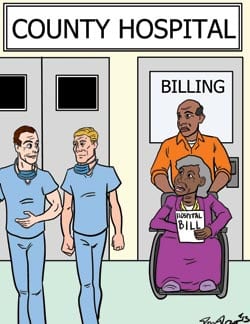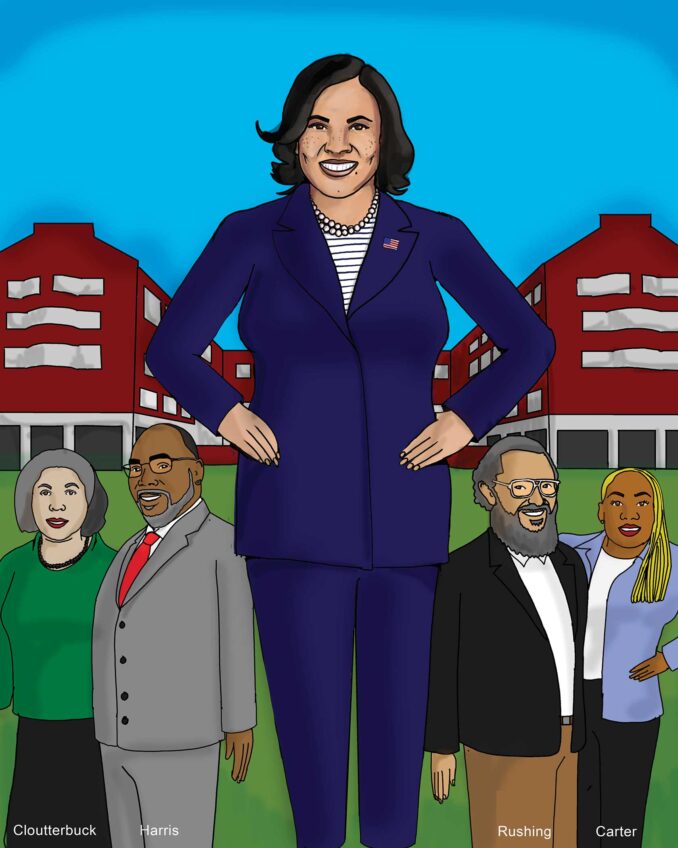
Decoding the healthcare maze
The U.S. House of Representatives recently voted for the 37th time to rescind Obamacare, the national Affordable Care Act. The vote was 229-195 in favor. However, John Boehner, the Republican Speaker of the House, is under no delusion that this action will be successful. The Democratic majority in the U.S. Senate will vote against it and the measure will fail.
The opposition to Obamacare demonstrates that many Americans still do not accept the idea of universal health care. This was not a problem in the early years of the republic. Medical science was so primitive then that adequate health care was unavailable to the affluent as well as the impoverished.
It was not until the last quarter of the 19th century that scientists developed vaccines for cholera, anthrax, rabies, typhoid fever and the plague, treatments for serious illnesses. The work of Louis Pasteur developed the concept of germs and Wilhelm Roentgen invented the X-ray machine. In the 20th century, religious groups, municipalities and wealthy benefactors built and maintained hospitals to care for the indigent.
Technological innovations such as CT scans and MRIs as well as sophisticated surgical procedures such as organ transplants greatly increased the cost of medical care. The American, self-reliant approach was for individuals to pay medical expenses just like any other bills, or buy insurance to cover medical emergencies.
This approach does not work as medical costs continue to trend upward. Health care costs in the U.S. have become the highest among industrialized nations. According to a study in 2012 by the Commonwealth Fund, a private foundation concerned with the development of a sound health system, the U.S. spent almost $8,000 per person on health care in 2009. Other developed countries spent one-third to two-thirds of that amount and achieved comparable medical outcomes.
As a nation, the U.S. is spending 17 percent of gross domestic product (GDP) on medical care while other nations spend only 12 percent. Japan’s costs are only 9 percent of GDP. The high U.S. costs are adversely affecting economic growth and creating economic crises for U.S. citizens. The American Bankruptcy Institute found that in 2012, about 62 percent of personal bankruptcies resulted from nonpayment of medical expenses.
It is now quite apparent that the nation’s health care system is flawed, but there is no general agreement on a solution. Obamacare is only a partial remedy. A major impediment to a more fundamental change is that many people are afraid of losing the quality of care that they presently enjoy. Since many Americans get their health insurance at work, they often remain committed to a job they don’t like in order to keep their insurance coverage.
Those who support a free market solution have to acknowledge that the pricing of medical services is confusing and opaque. The recent release by the federal government of hospital charges for Medicare reimbursement showed a wide range of prices across the country for the same service. According to a New York Times analysis, the Bayonne Medical Center, located in a blue-collar town, has the highest costs in the country for a number of hospital services. The differences are three to four times greater.
People cannot be expected to behave like discerning consumers and fathom the vagaries of competing health insurance policies and varied cost structures of medical centers. There can be no solution to the health care problem in America until medical costs are under control and relatively easy to understand. And most important of all, health care must be available to everyone.
Many of the medical innovations available to the affluent were invented in research financed by tax dollars. It would be uncivilized to deny any taxpayers access to the discoveries they helped to finance.






